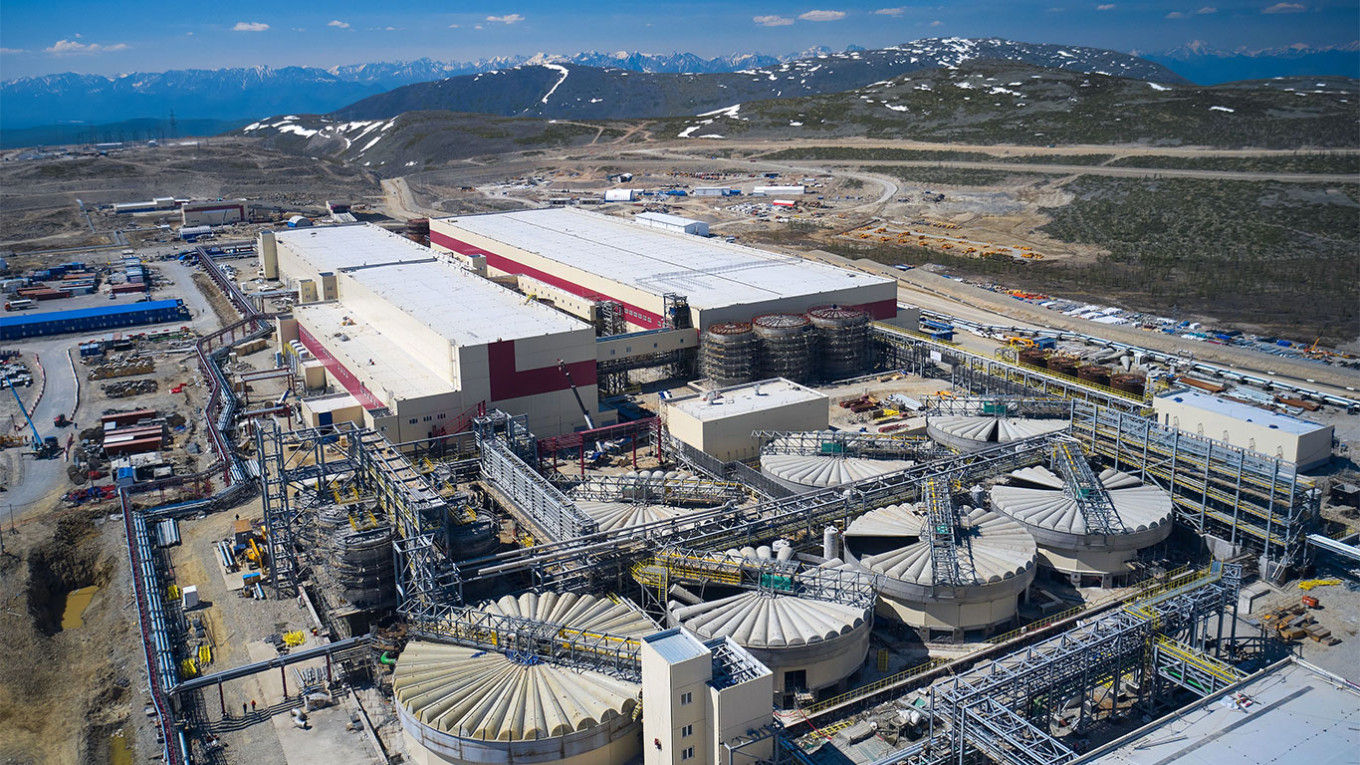Wars always have unintended consequences. In the days leading up to Russia’s full-scale invasion of Ukraine, European leaders fussed over the fate of Nord Stream 2 and the loss of natural gas transiting through Ukraine.
Flash forward to today. Sanctions on Russian hydrocarbons have caused inflationary headaches as countries realize how much they relied on Russia’s natural wealth, which it sold off at a cheap price. At the same time, the importance of critical minerals needed to produce technology for the energy transition is increasing. Russia is rich in these too. Even if it can export more of them, they’ll feed industries that threaten to upend the foundations of oil, gas, and hydrocarbon rents underpinning much of the Russian economy and fiscal system.
The launch of the Udokan mine in Russia’s Far East would, in normal times, be a cause for global celebration. Udokan, one of the world’s largest deposits of high-grade copper, is easily accessible thanks to the Baikal-Amur Mainline, a major railway line connecting Siberia with Russia’s Far East. You would think a $7 billion development project like this would get more attention, especially considering its potential to supply the sulfides and cathodes countries need for producing countless industrial goods and green products like batteries and solar panels.
That it hasn’t speaks to the uncertainty of Russia’s future. The invasion has exposed Moscow’s reliance on hydrocarbons to prop up its economy. Despite the growing renewables sector, fossil fuels will dominate the global energy economy for a long time to come in terms of sheer volume. But as demand eventually dissipates, the complex system of subsidies, tax exemptions, and cartel arrangements between Russia’s leading resource firms will become far more difficult to manage.
Any hope of extracting more critical minerals, as well as building more batteries, solar panels and other “green” technologies for European consumers has been dashed by Western sanctions, which have no chance of being lifted in the foreseeable future. Mines like Udokan still provide employment, tax income and anchor infrastructure in Russia’s underdeveloped provincial regions. Once at full capacity, Udokan will generate several billion dollars in export earnings annually. But the real prize lies in finding ways to use this copper cheaply and efficiently in new supply chains
Russian copper has increasingly flowed eastward since sanctions were imposed. Chinese buyers can’t resist the glut of cut-price copper this shift has left at their disposal. Given that China accounts for 40% of global copper imports, it is probable that Udokan will increase this share, especially since Russia lacks the domestic manufacturing capacity to use its reserves to its full advantage.
A little over one-quarter of every ton of copper products Russian firms sell will be used in clean energy technologies, including batteries for electric vehicles. That figure will grow to half of every ton in the next 15 years. Every ton of copper sold from Udokan will feed the battery and electric vehicle complex, beginning to reshape demand expectations for oil and products like gasoline and diesel.
Over 37% of new car sales in China are fully electric or plug-in hybrids, which frequently get over 60 miles per gallon. Globally, similar models will account for upward of 18% of sales this year. These figures will only grow in the years ahead. China, more than any other economy, is positioned to flood the market with price-competitive electric vehicles, crushing oil demand linked to transportation.
For an economy at war and dependent on oil revenues, timing peak oil is less important than understanding the cumulative effect of plateauing demand. The energy transition creates successive waves of tug-of-war between commodities. Opening new copper mines in Russia will undercut long-term demand for oil and gas, which are the single largest sources of state revenue. Sanctions and limited investment in the past decade have closed the door for Russia to play a larger role in the metals markets in the future.
Meanwhile, the war has brought the question of munitions production into focus. Russia has shown it is preparing to fight a long war. News that Russia’s 2024 budget includes a 70% increase in defense spending illustrates just how many resources are being thrown into the conflict. Defense spending is, however, underwritten by the oil & gas revenues structurally threatened by sanctions and the green industries Udokan’s copper will supply.
The military-industrial race between Moscow and the West matters. But the global energy transition is also an industrial race — one that is taking place without Russia. In time, the U.S. Inflation Reduction Act will mark a turning point for energy markets. The tax provisions written into the bill have unleashed a surge of interest from firms across Asia and Europe into U.S. hydrogen, electric vehicles, and metals processing and refining projects. This interest extends to mines and refineries in countries with which Washington has free trade agreements. Whatever becomes of Russia after the war will happen in the shadow of hundreds of billions of dollars worth of investment into the production of green technology. Investment which Russia will have missed out on.
Prime Minister Mikhail Mishustin has tasked the Finance Ministry with coming up with tax breaks and subsidies to support additional expansions of mining and processing capacity at Udokan, reflecting the high costs of development in Siberia. A similar approach was taken to supporting older oilfields in the region, showing the Kremlin recognizes critical minerals may be as important to their economy as fossil fuels. But no amount of tax breaks can make Russia competitive with copper mines in Chile, nickel mines in Indonesia, or lithium mines in Australia where trade agreements, better geology, or more attractive conditions for foreign investors are drawing large volumes of investment. Russia-based projects will not yield “green premiums” no matter how much they slash emissions. They won’t sign contracts to supply new factories on the world’s leading growth markets for batteries or clean technologies.
The world is not ditching fossil fuels wholesale. Growing pains from sanctions highlighted how dependent countries had been on Russia’s abundant natural reserves, forcing them to open new resource extraction projects. The huge premiums enjoyed by diesel in the wake of the EU’s ban on Russian imports, as well as reductions in refinery capacity, falling investment into the oil & gas sector, and fluctuations in Chinese refined petroleum products exports speak to that. But these markets now operate in a world where reducing consumption is increasingly feasible and arguably imperative for making businesses resilient in the energy transition.
The Udokan mine was supposed to prove that Russian mining could flourish under sanctions. Instead, it shows that whatever happens in the months — and possibly years — ahead in Ukraine, Moscow has lost its chance to take an active part in the decarbonization of the global economy. Even if similar large projects to extract critical minerals are developed, the technologies they feed will eat away at the demand for the fossil fuels that are the foundation of Russia’s economy. The loss of these windfalls will overturn the consensus that supported state spending for the past 20 years.
A Message from The Moscow Times:
Dear readers,
We are facing unprecedented challenges. Russia's Prosecutor General's Office has designated The Moscow Times as an "undesirable" organization, criminalizing our work and putting our staff at risk of prosecution. This follows our earlier unjust labeling as a "foreign agent."
These actions are direct attempts to silence independent journalism in Russia. The authorities claim our work "discredits the decisions of the Russian leadership." We see things differently: we strive to provide accurate, unbiased reporting on Russia.
We, the journalists of The Moscow Times, refuse to be silenced. But to continue our work, we need your help.
Your support, no matter how small, makes a world of difference. If you can, please support us monthly starting from just $2. It's quick to set up, and every contribution makes a significant impact.
By supporting The Moscow Times, you're defending open, independent journalism in the face of repression. Thank you for standing with us.
Remind me later.






